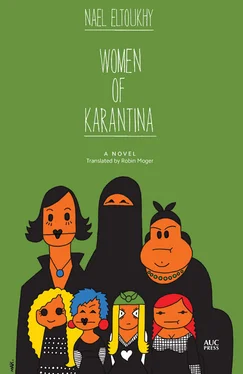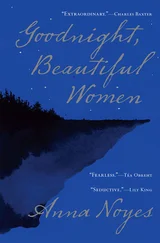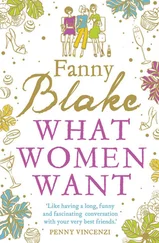The platform is completely empty. Everyone has run off. Alone on the platform, Ali takes Inji in his arms, the two of them very tall, very splendid, upright and full of rage, clothes torn: two gods. Striding confidently, they leave the station. On the opposite side of the square outside, Ali stops a taxi. They ride along in silence. Utterly silent. Silent, aside from a worn and weary, “Ain Shams, driver.”
Mustafa watched his brother enter the apartment with Inji and the pair slump down on the big couch in the front room. Mustafa was making a cup of tea. Mustafa emerged from the kitchen.
Blood and sweat and grime cover their clothes. He questions them. No one answers. After three minutes have passed, Ali speaks: I killed someone. Inji experiences a moment of machismo: I killed him with you. Mustafa lights a cigarette. He hands it to his brother and his brother speaks. His gaze is unwavering, his tone robotic. For half an hour he speaks. Mustafa can do nothing, has nothing to suggest. After a bit he goes back to the kitchen, where he calls somebody. He ends the call and returns to Ali. You two are coming with me, now. You’ll sleep in the street tonight. Tomorrow morning you’ll catch the first bus to Alexandria. A guy called Sheikh Hassan will be waiting at the station. I’ve spoken to him. He’s someone I know from the army. I helped him out and he’ll help you. Any plans you’ve got floating around in your heads, forget them. Taar or otherwise. We’ve got enough shit to deal with.
Ali, Inji, and Mustafa spend the night on a wooden bench in Tahrir Square, Ali resting his head on the big suitcase and Inji resting hers on his shoulder and Mustafa keeping his distance. At first light they get up and make their way, a humble convoy, a knot of kin borne away by the sin in which they flounder, to Ramses. A bus to Alexandria is still empty. Four or five seats are taken. The three of them drift off, each on a different course, and when the bus’s horn sounds, when it has filled up, they return, and Ali and Inji sit on the back row and wave farewell to Mustafa. The bus drives off. Only then do they sleep, deeply.
I’m Sousou. My name’s Said, but call me Sousou. I prefer it.
. .
You scared of me, or shy, or what?
. .
Don’t be scared. I’ve never hurt anyone in my life, and I never will, God willing.
. .
We do good by God’s grace alone.
. .
Where you two from, anyway?
. .
Didn’t I tell you? You’re scared of me. What, I’m asking you because I want to hurt you?
We’re from Sohag.
No finer folk, my friend. Cigarette?
Sheikh Hassan is a kind man, the kindest man Ali has ever met in his life. A truly righteous man. He’s made the pilgrimage to God’s House ten times and has never given an evil look to anyone, not a lustful glance, not a gaze of envy.
Ali’s working in a clothes store in Camp Cesar now. Most beautiful place in the world, Camp Cesar: taste and style; a working-class neighborhood and a tourist hangout at the same time. Ali lives there with Inji in a little apartment owned by Sheikh Hassan and they pay the rent together, a thousand pounds a month deducted from their salaries, plus one further condition: I’m a God-fearing man. On the Day of Reckoning I don’t want Him going through His books and telling me I’ve brought two together to live in sin. If you want to be together you’ve got to marry. . and it won’t cost you a thing: just a piece of paper to buy God’s goodwill and may He bless you with a pure and noble progeny.
And so it came to be: Ali married Inji. They lived in Sheikh Hassan’s apartment and started working at his store, Way of Truth Clothes, with Inji on the till and Ali as Sheikh Hassan’s right-hand man for everything from pulling in the customers to sealing deals for new orders.
The days come and go. A month passes, two months, three. Inji is pregnant.
How did each one learn to live with the sin they bore about their necks? How did they cope with having become, in mere seconds, in the blink of an eye, killers on the run? Ali had previous: long ago he’d slashed a man’s face with a knife. He had gone to prison and since then had avoided fights. He liked to say of himself that he wasn’t the argumentative type. Inji, of course, had no criminal background of any kind. Both, it seemed, treated their situation as a temporary setback. They were on the run right now, but a time would come when they’d stop running, when they would return to their new home in Ain Shams, and when they did, the crime would disappear from history, would be wiped from their memories, the dead man would return to life, and they. . they would awake from the nightmare. For nights on end their conversation turned about this point.
I’m scared.
(He puffs out cigarette smoke. Says nothing.)
Ali, we have to go back.
Go back where?
Our home. Your home. You have to tell the police. It’s a murder in defense of honor. You won’t get anything for it.
And people?
What about people?
When they find out I killed someone. .
(Correcting him) That we killed someone. .
When they find out we killed someone. .
You killed him by mistake.
(He smiles sourly.)
(In agitation) You don’t want to do anything !
(The sour smile.)
You’ve no sense of responsibility!
(The sour smile fades. He puffs out smoke.)
You’re always afraid of confrontation. It’s always me who takes the decisions.
(He turns to her. Grabs her hand. He squeezes her wrist hard. Violently. He looks her in the eye. His eyes are bloodshot.) I killed a man for you.
(Correcting him) We killed a man.
(Shouting) I’m the one who pushed him in front of the train because he was bothering you. I’m the one everyone saw murdering him. You were just the little lady who poked him in the belly, but it’s my future that’s down the pan. My future and my son’s.
(She turns away. After a while she looks back at him and her eyes are trembling with tears) I don’t love you anymore.
(The same sour smile returns.)
Sousou was smart. He worked a liver cart outside the store. Ali got to know him eating there. Soon after, Sousou started to drop in at the Way of Truth and a friendship, a special kind of friendship, grew. They spent almost the whole day together. Ali, new to the neighborhood and trying to make himself agreeable to those around him, gave him a pair of Levis, which he paid for out of his own pocket, and Sousou could not think how to return the favor. Sousou came to Ali’s home and made himself a friend to the family. Almost her friend as well. Not a great friend. Inji didn’t like him much. Inji didn’t like anyone from the neighborhood. She was fed up with her life, with everything. Sousou made himself a bet that she’d come round, but he lost the bet. She didn’t come round. And this did not hurt Sousou’s feelings.
Sousou had a feeling for people. He was in his twenties, short, with a husky voice, and he limped, one leg longer than the other. Perhaps this handicap was why he was so sensitive to the plight of others. The moment he saw Inji he knew there was some secret here: an educated girl, cultured, come with her husband to work a cash register in a clothes store, revolted by everything around her, and her life and that of her husband a mystery to all. Sousou had no desire to harm anyone. It was knowledge he sought, knowledge alone, a knowledge innocent of power. Time and time again he took the liberty of inviting Ali to his place, a small rooftop shack, and there he introduced Ali to his brothers, Adel and Abu Amira (the oldest of the three and the homeowner), as Bashmuhandis Ali: the man we’re to show a good time. And Adel did not skimp. Beer and hash till sunup. But at ten, Ali made his excuses. Abu Amira grabbed him by the arm and said, Over my dead body, brother, you’re staying with us tonight. Respectfully, Ali replied that the wife might worry about him, that she was in her first month of pregnancy. Abu Amira swore a fearsome oath and solved the problem: So you call her now and I’ll send the wife to keep her company. Us men can relax. Ali called Inji to tell her and Abu Amira went off to negotiate with his wife who left the shack fifteen minutes later, and the men sat up till morning.
Читать дальше












